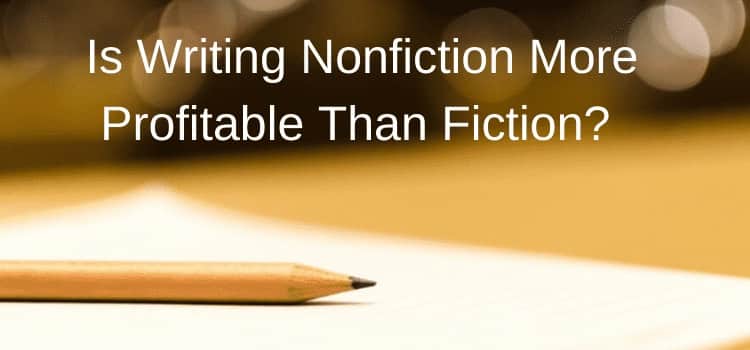
Writing nonfiction books has many advantages. But does fiction or nonfiction sell better for self-publishing authors?
Fiction and particularly romance, seems to dominate self-publishing.
Yet nonfiction books have a lot of upsides when it comes to making money from your writing by selling ebooks.
If you are an author, it is worth investigating your nonfiction genre options.
Does nonfiction sell better than fiction on Amazon?
The answer is definitely, yes.
But generally only in ebook versions.
Print sales for self-help and personal development books are very modest.
One of the significant advantages nonfiction authors have is that it offers enormous potential for topic-related online discoverability.
It means that the topic or subject of a nonfiction title is much easier to promote to a target audience by using basic SEO practices.
All you need is a working blog.
Then ensure that Google and other search engines index your articles and blog posts.
People often use Amazon search to find an answer to a question.
You have a good chance of finding a new reader if it’s in your topic area.
It is much more difficult for a fiction author to succeed in marketing a book using this technique.
Keywords and categories
However, the most powerful tool for selling nonfiction books is choosing the best book categories and search keywords when publishing.
Keywords, of course, are gold when it comes to readers searching for and finding a new book to read either on Google, Amazon Search, or by any other means of Internet search.
Because nonfiction books are subject-specific, choosing profitable search keywords is relatively easy and effective.
This is a difficult task for fiction titles because they are rarely subject or topic-specific.
The second advantage of nonfiction is that there is an enormous market for ebooks in particular.
They offer a rapid means to access information and answers to questions that readers are hunting for on a specific topic.
These topics are almost unlimited.
But a good starting point for a little research is the BISAC site, where you can find the categories that Amazon Kindle uses.
You can find the overall subject heading here or the self-help listing here.
Another advantage is that Kindle ebook buyers, in particular, are very willing to buy self-published nonfiction ebooks.
Self-publishers have a big slice of the sales pie
Look at the following three graphs courtesy of Author Earnings for fiction and nonfiction.
They show self-published and small press titles now have a substantial market share in the publishing industry.
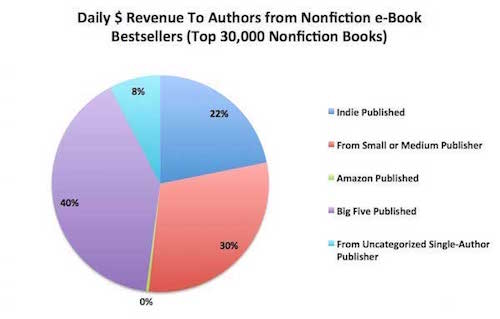
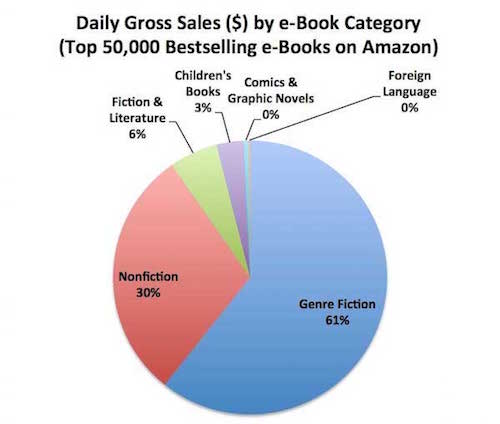
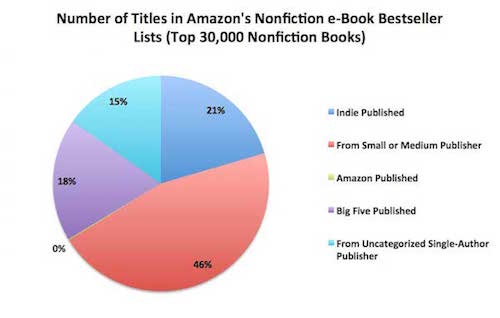
Nonfiction is only 30% of total ebook sales.
But self-publishers and small press have more than 50% of the market and revenue. Traditionally published books are at only 18%.
This makes it a lucrative market. Nonfiction is most certainly less competitive than the fiction and genre fiction market.
Finding your niche, though, is the secret.
Writing nonfiction
You might have a nonfiction book idea in mind.
The best way to get started is to create an outline of the main points you want to cover.
Think about the problem you are trying to solve for your readers. You could try using a mind map to get your ideas in a logical sequence.
Unlike fiction books, you need to have clear points that you will discuss in your book.
Your table of contents should list the key elements that are going to hook your potential readers.
Once you have these elements in place, you can start to write the first draft of your book.
Take your time and cover each part in full. Remember to concentrate on solving problems and giving fresh ideas to your readers.
It depends on how much time you have to write before you finish your first draft.
If you have time for a writing schedule that allows you to write 1,000 to 1,500 words per day, you could expect to finish a 30,000-word manuscript in a little over one month.
That’s relatively rapid for writing a book.
Perhaps the answer is that it might be easier to sell nonfiction.
If you are considering writing nonfiction, Joanna Penn wrote a terrific step-by-step guide to writing nonfiction, which is highly recommended reading.
Lastly, and probably most importantly, nonfiction books tend to be much shorter than fiction – in the range of 20-35,000 words.
That’s not short story length, but it is much shorter than a fiction novel.
There is obviously more research involved.
But the actual writing process time for a nonfiction title is usually faster than for a novel of 100,000 words.
Are you currently writing fiction and not feeling that you are getting the financial rewards you would like?
Perhaps it is time to do some research and look at what possibilities there are in nonfiction writing for you.
Related reading: Are Your Amazon Books Merged On Your Sales Page?

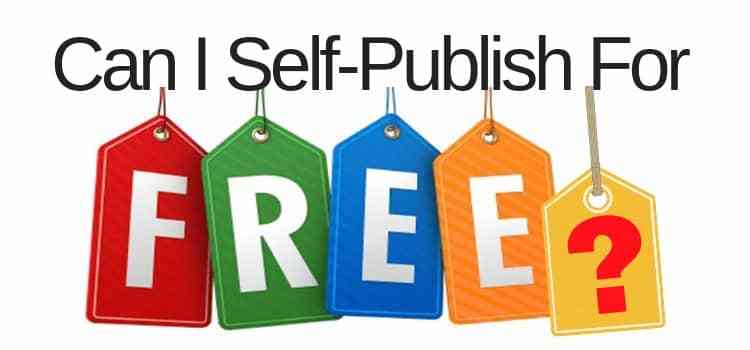
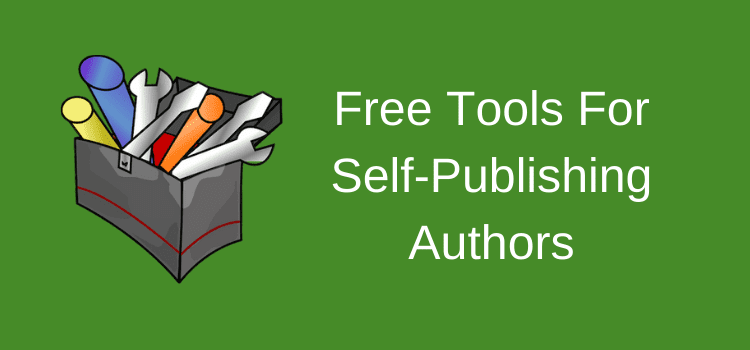
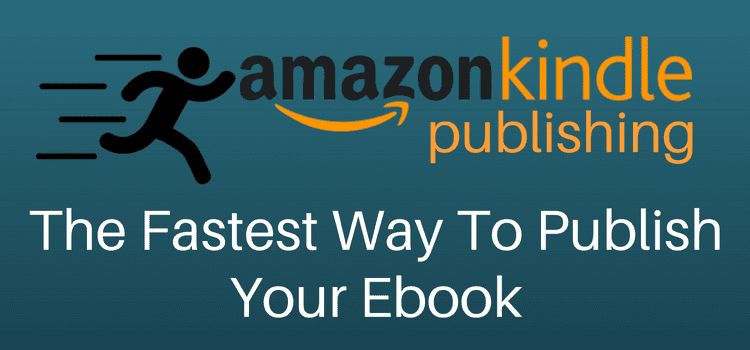
Hi Derek,
What is the explanation behind the trend, as mentioned in this Article:
Kindle eBook buyers in particular, are more willing to buy SELF-PUBLISHED NF (non-fiction) BOOKS??
Hi Derek,
Thanks a lot for this one. I have been thinking over this subject for some time. Finally, you have helped me stick to the non-fiction genre.